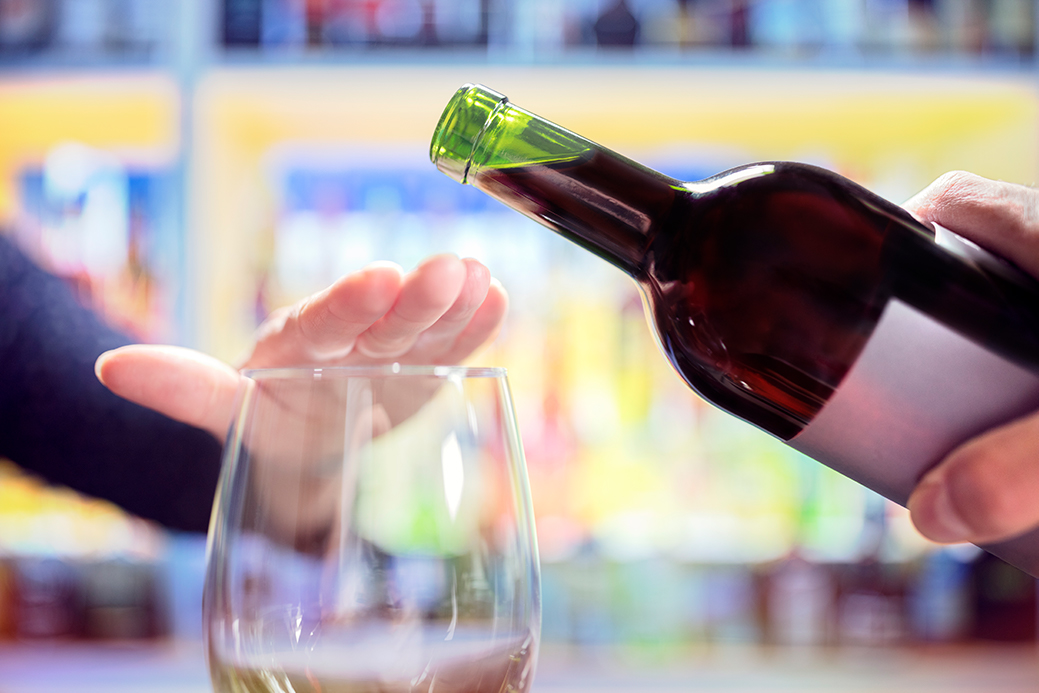Many people report an increase in alcohol intake when they are feeling stressed, anxious, or depressed. According to the 2015–2020 Dietary Guideline, moderate alcohol consumption is defined as having up to 1 drink per day for women and up to 2 drinks per day for men. You can find out more about what defines a standard drink here. Health providers recommend that if you find yourself consuming more than this guideline, you should consider reevaluating. Because alcohol consumption can become a habit that is sometimes hard to break, we provide a few recommendations here on how and why to cut back.
The How
- Set a drinking limit. Keep your drinking below the recommended guidelines: no more than one standard drink per day for women and no more than two standard drinks per day for men.
- Put it in writing. Make a list of reasons to curtail your drinking. You might include some of the reasons we list below if they resonate with you. Additionally, keep a diary of your drinking. Be sure to take note of the amount, the time, and the place in addition to any situations or feelings that you have. Looking at this information can help determine if there are any patterns with the drinking.
- Avoid the triggers. Spend time away from people, places, and things that remind you of drinking.
- Ask for support. Cutting down on alcohol intake is not always easy. Let friends and family know your goal and that you need their support. If you continue to have trouble, speaking with a doctor or a psychologist can help.
The Why
There are some immediate positive effects of cutting down alcohol intake and these include: feeling better upon waking up, having more energy during the day, better looking complexion, and less fluid retention.
In addition to the positive effects that you might see right away, reducing your alcohol intake can have a longer-term impact on your physical and mental health. For example, alcohol reduction can positively impact your mood. When you have a tendency towards depression or anxiety, drinking alcohol can increase these feelings. In addition, drinking alcohol can affect your sleep. It may help you fall asleep quickly, but it can disrupt your sleep cycle and prevent well rested sleep. In the long term, drinking also negatively impacts the heart and impairs the immune system.
During this time of the Covid-19 pandemic, there are likely increased stressors and triggers. Despite this, it is important to monitor drinking patterns and cut back if necessary. By doing this, we can improve our physical and mental health at a time when staying healthy is paramount.

